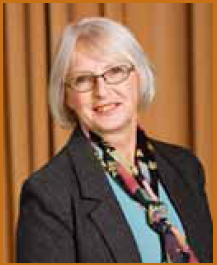Dr. Camper is another in a long line of home-grown Montanans who have excelled in the field of biosciences. Her early childhood was spent camping and indulging in her father’s fly-fishing passion on Montana’s rivers. This transitioned into many summer hours on horseback in the Selway Bitterroot Wilderness area where she developed a deep appreciation for the importance of water (maybe there is something in the water, after all!). These experiences cemented her developing an interest in a career in science, with a particular focus in microbiology and preserving our water resources.
Like many other of our past recipients, Dr. Camper was fortunate to have had a high school science teacher who allowed her to pursue an individual project where she investigated the change in microbiological water quality of the Bitterroot River – starting with the headwaters of the West Fork and ending at the mouth in Missoula. With this project, she won the State Science Fair and participated at the International Science Fair in Baltimore, MD. Another transformative opportunity was an American Cancer Society fellowship that allowed her to work for a summer at the Rocky Mountain Laboratories in Hamilton on a project related to immune responses to the Bordetella pertussis vaccine.
Dr. Camper developed an early connection to Montana State University (MSU) in Bozeman as an undergraduate. Studying microbiology, she was able to take classes from internationally known faculty in environmental microbiology, immunology, and medical microbiology. She was hired to work and do research and spent many hours in Cooley Laboratory. After also obtaining an M.S. in environmental microbiology, she was hired as a research scientist where she investigated the behavior of microorganisms in drinking water, soils reclaimed after coal strip mining, and other topics.
Later she was given the privilege to work with Dr. Bill Characklis as he started what was to become the Center for Biofilm Engineering. In that capacity, Dr. Camper developed an interest and appreciation for solving real-world problems where the fields of microbiology and engineering intersected and how solutions to these problems would have an immediate impact. The experience of working across disciplinary boundaries pushed her to obtain a Ph.D. in civil/environmental engineering.
Dr. Camper has also been involved with the Center for Biofilm Engineering at MSU since its inception. Her research interests are in biofilm growth and control in drinking and industrial water systems; the fate, transport, and survival of pathogens in biofilm systems; and the physiology of biofilm bacteria. She has been the principal investigator or co-principal investigator on over 75 grants. Along with Andreas Nocker, a German colleague, she holds a patent on the use of propidium monoazide for the detection of viable organisms via PCR-based technologies.
In addition, Dr. Camper also directs community-based participatory research funded by the National Institutes of Health with the Crow Tribe in Montana and as the PL on two projects supporting Native American undergraduate and graduate students engaged in health-related degree programs. Awards include MSU’s Wiley Award for Meritorious Research, the American Consulting Engineers Council of Massachusetts’s Grand Conceptor Award, and the American Academy of Environmental Engineering Excellence in Environmental Engineering Research Grand Prize (as part of a team of industry and academic partners) and chair of Division Q (Environmental Microbiology) for the American Society for Microbiology.

